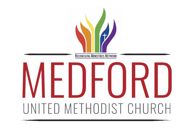
28 One of the legal experts heard their dispute and saw how well Jesus answered them. He came over and asked him, “Which commandment is the most important of all?”
29 Jesus replied, “The most important one is Israel, listen! Our God is the one Lord, 30 and you must love the Lord your God with all your heart, with all your being, with all your mind, and with all your strength. 31 The second is this, You will love your neighbor as yourself. No other commandment is greater than these.”
32 The legal expert said to him, “Well said, Teacher. You have truthfully said that God is one and there is no other besides him. 33 And to love God with all of the heart, a full understanding, and all of one’s strength, and to love one’s neighbor as oneself is much more important than all kinds of entirely burned offerings and sacrifices.”
34 When Jesus saw that he had answered with wisdom, he said to him, “You aren’t far from God’s kingdom.” After that, no one dared to ask him any more questions.
Reflection
When we read scriptures like this one, often the age-old question comes to mind – who is my neighbor? We remember from our Lenten readings the story of the good Samaritan in Luke in which Jesus basically says everyone is our neighbor. In this age of technology, world travel, global economics, the World Health Organization, the United Nations, and so on, we realize that it is truly a small world. Our neighbors are not just those we live near or those in neighboring counties, states, or countries, but truly all of humanity is our neighbor in this context. Jesus wants us to see all people as God sees them – worthy of love and care.
I live 45 minutes away from Latrobe, PA, the hometown of Arnold Palmer and Fred Rogers. Also, the birthplace of the banana split. Arnold Palmer was an incredible golfer and may be even better known for the mix of lemonade and iced tea named after him. Fred Rogers is Mr. Rogers of the acclaimed PBS show Mr. Roger’s Neighborhood. Mr. Rogers was an ordained Presbyterian minister, and although he maintained his ordination by meeting with the Presbytery, he did not pastor a church, but did his preaching and teaching on his show. Mr. Rogers made a point of being welcoming to all – asking children if they would be, could be his neighbor, and always telling them that they were loved just the way they were. Google Mr. Rogers’ songs or the soundtrack from the movie “Beautiful Day in the Neighborhood” and read the lyrics that talk about how Mr. Rogers was proud of you, how he liked you just for you, how he wanted to live in a neighborhood with you, and how he promised that every day, he would be back when the day was new with new ideas and things that you would want to talk about as well as things that he would want to talk about. It was never just about him. Mr. Rogers embodied being a good neighbor and loving his neighbors, accepting people as they were, and encouraging children and adults to accept themselves and others just as they were.
I live in a neighborhood. Do I know all my neighbors? No. Do I think I know some of them from the political signs they display or decorations they put out? I will admit that I am not sure I want to know some of them, and they probably feel the same way about me, but would I turn my back on them if their house was on fire or they were hurt on the street? Of course not. But in this day and age of hate and fear, are we fearful of our neighbors? Are we reluctant to get to know them and to care for them?
Mr. Rogers lived in the neighborhood in Pittsburgh where the Tree of Life synagogue attack took place. He was gone by then, but his wife Joanne spoke to the congregants and to the community to tell them they were loved, and many people quoted him about finding the helpers in the neighborhood to help people get through and overcome the trauma. People were still relying on the words of their “ultimate neighbor” for help during that terrible time and today. People from the Charleston, South Carolina, church where shootings took place came to Pittsburgh to be with the Jewish community. That’s being a loving neighbor. They were neighbors not because of proximity, but because of shared experience.
Do we need to experience a tragedy for us to come together as neighbors or to help others? We shouldn’t, but sometimes that is an impetus for us to do more because we can’t imagine going through that difficulty. So we send food and money to Ukraine, we help with supplies for storms in Kentucky, and on and on. We see communities come together in the wake of difficulty or when something wonderful happens. We want others to acknowledge our need and our shared humanity – that is what being a neighbor is all about. In the words of Mr. Rogers, “Let’s make the most of this beautiful day!” Now that the weather is getting nicer, go out and greet a neighbor or see what you can do to help make your neighborhood a better place to live.
by Janet Waryck
For Pondering & Prayer
What are some things we can do to help our neighbors? How can we be more loving and kinder to those around us today?
Prayer: Loving Lord, help us to follow these commands to love you first and in loving you to love our neighbors as ourselves. Amen.
